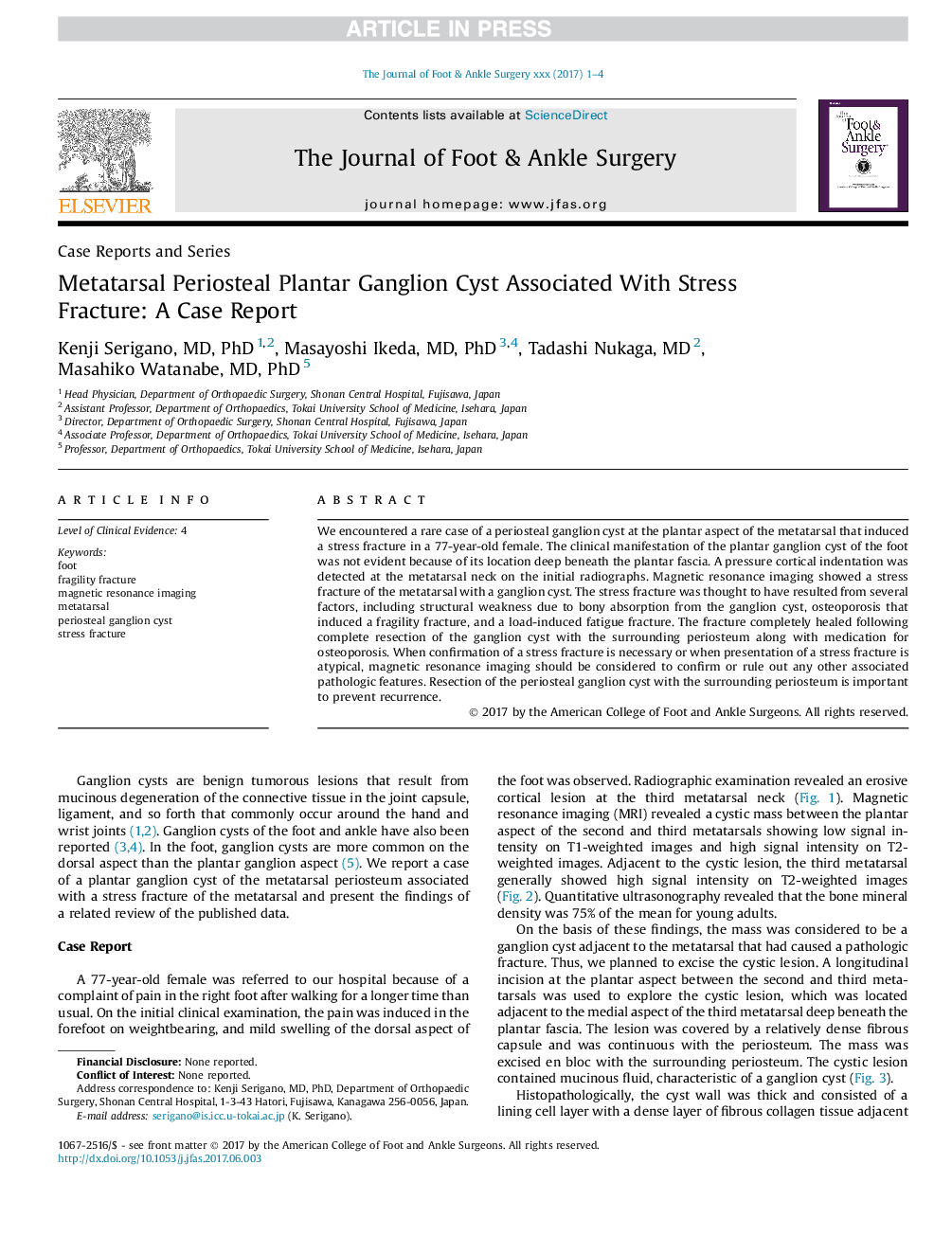| Article ID | Journal | Published Year | Pages | File Type |
|---|---|---|---|---|
| 8603578 | The Journal of Foot and Ankle Surgery | 2017 | 4 Pages |
Abstract
We encountered a rare case of a periosteal ganglion cyst at the plantar aspect of the metatarsal that induced a stress fracture in a 77-year-old female. The clinical manifestation of the plantar ganglion cyst of the foot was not evident because of its location deep beneath the plantar fascia. A pressure cortical indentation was detected at the metatarsal neck on the initial radiographs. Magnetic resonance imaging showed a stress fracture of the metatarsal with a ganglion cyst. The stress fracture was thought to have resulted from several factors, including structural weakness due to bony absorption from the ganglion cyst, osteoporosis that induced a fragility fracture, and a load-induced fatigue fracture. The fracture completely healed following complete resection of the ganglion cyst with the surrounding periosteum along with medication for osteoporosis. When confirmation of a stress fracture is necessary or when presentation of a stress fracture is atypical, magnetic resonance imaging should be considered to confirm or rule out any other associated pathologic features. Resection of the periosteal ganglion cyst with the surrounding periosteum is important to prevent recurrence.
Related Topics
Health Sciences
Medicine and Dentistry
Orthopedics, Sports Medicine and Rehabilitation
Authors
Kenji MD, PhD, Masayoshi MD, PhD, Tadashi MD, Masahiko MD, PhD,
